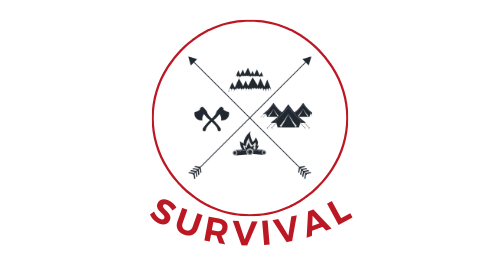In the face of extreme scenarios, the ability to adapt becomes vital. From natural disasters to unforeseen challenges, adapting to the ever-changing environment can mean the difference between life and death. This article explores the crucial role that adaptability plays in surviving extreme scenarios, shedding light on the key skills and strategies necessary to navigate these situations successfully. Discover how adaptability can be honed and why it is a fundamental trait for anyone faced with the unexpected.

Definition of Adaptability
Adaptability refers to the ability to adjust to new or changing circumstances. It is the capacity to respond effectively to unexpected situations and navigate through them. In the face of adversity and challenges, adaptability allows individuals to modify their behavior, mindset, and strategies to thrive and succeed. Whether it involves physical, mental, emotional, or cognitive aspects, adaptability plays a crucial role in ensuring survival and success in extreme scenarios.
Physical Adaptability
In extreme environments, physical adaptability is paramount for survival. It involves the implementation of various survival tactics to overcome the harsh conditions and challenges presented by the surroundings. Understanding the environment and its potential dangers is vital, as it allows you to anticipate threats and react accordingly. For example, in icy conditions, developing the ability to walk steadily and securely requires adaptability in adjusting your movement and balance. Physical fitness also greatly impacts adaptability, as being in good physical condition enables you to endure and overcome the challenges that may arise.
Mental and Emotional Adaptability
Resilience is a key trait when it comes to mental and emotional adaptability in extreme scenarios. The ability to bounce back from setbacks and maintain a positive mindset is crucial for survival. Developing mental strength and flexibility helps you cope with stress, fear, and uncertainty. It allows you to stay focused and make rational decisions even in high-pressure situations. Enhancing resilience can be achieved through practices like mindfulness and meditation, as well as seeking support from others.
Cognitive Adaptability
In crisis situations, cognitive adaptability is vital for problem-solving. As circumstances rapidly change, being able to think quickly on your feet and adapt your strategies is crucial. This requires the ability to remain open-minded, consider different perspectives, and make decisions based on the information available. Adapting to rapidly changing information enables you to make sound judgments and respond effectively to the challenges at hand. Developing problem-solving skills and embracing a flexible mindset are key factors in enhancing cognitive adaptability.

Social Adaptability
Surviving extreme scenarios often requires the formation of alliances and cooperation with others. Social adaptability plays a significant role in building and maintaining relationships, as well as effectively communicating and negotiating with others. Forming alliances provides mutual support and increases the chances of survival. Effective communication allows for the sharing of information, strategies, and resources, which are vital in extreme scenarios. Developing social adaptability involves practicing active listening, empathy, and conflict resolution skills.
The Role of Training and Preparation
Training and preparation serve as crucial foundations for adaptability in extreme scenarios. Simulated scenarios and adaptability tests help individuals understand potential challenges and develop the necessary skills to overcome them. Through rigorous training, individuals can build mental and physical resilience, allowing them to perform optimally under high-stress conditions. Regular practice and exposure to diverse situations enable individuals to adapt quickly and efficiently when faced with unexpected circumstances.
The Impact of Technology on Adaptability
Technological advancements have the potential to greatly enhance survival strategies in extreme scenarios. Tools and resources offered by technology can aid in overcoming physical and cognitive limitations in challenging environments. For instance, the use of GPS devices in wilderness survival can provide valuable information about navigation and route planning. Utilizing technology effectively can significantly enhance one’s adaptability by providing crucial information and resources in real-time.
Adaptability in Natural Disasters
Surviving natural disasters such as earthquakes, tsunamis, and hurricanes requires adaptive skills and preparedness. Understanding the geographical risks and having emergency plans in place are essential. During an earthquake, for example, knowing to take cover under sturdy furniture can save lives. Additionally, being part of organized community emergency response teams allows for effective coordination in disaster relief efforts. Adaptability in natural disasters lies in being proactive, prepared, and flexible in response to rapidly changing circumstances.
Adaptability in Military and Combat Situations
In military and combat situations, adaptability is crucial for tactical flexibility and strategic planning. Adapting to enemy tactics, terrain, and changing circumstances is a matter of life or death. Soldiers must continually evaluate their strategies, adjust their plans, and remain flexible in the face of unexpected challenges. Survival in hostile environments involves quick thinking, effective communication, and the ability to adapt and respond swiftly to changing situations.
Adaptability in Societal and Economic Crises
Adaptability is equally important in societal and economic crises. Coping with financial downturns and job loss requires individuals to adapt their lifestyles and seek alternative solutions. Adapting to shifting societal norms and changes in social dynamics necessitates open-mindedness and willingness to embrace new perspectives. Building new skills and exploring different avenues can help individuals thrive despite the challenging circumstances. Adapting to societal and economic crises involves being resourceful, resilient, and proactive in seeking opportunities for growth and survival.
In conclusion, adaptability is a crucial trait in surviving extreme scenarios. Whether it be physical, mental, emotional, or cognitive adaptability, each aspect plays a significant role in ensuring one’s ability to navigate and thrive in challenging situations. By understanding the importance of adaptability and actively developing the necessary skills, individuals can increase their chances of survival and success when faced with unexpected circumstances. Through training, preparation, and embracing technological advancements, one can enhance their adaptability and overcome the challenges posed by extreme scenarios.

